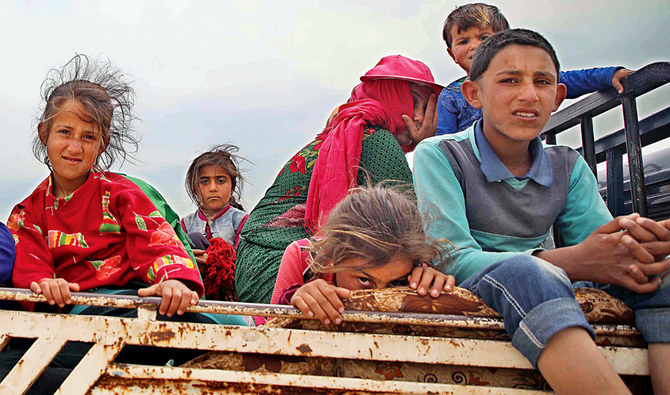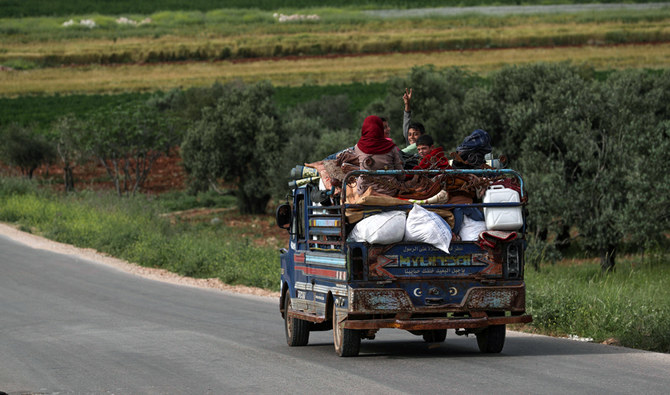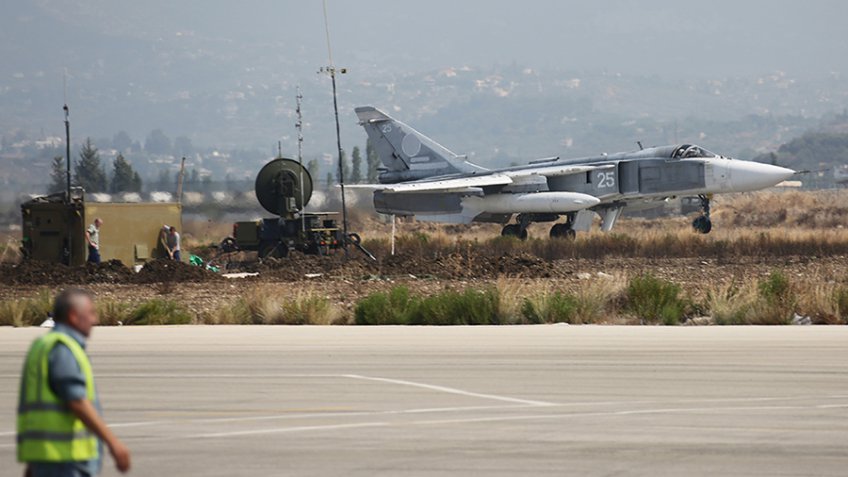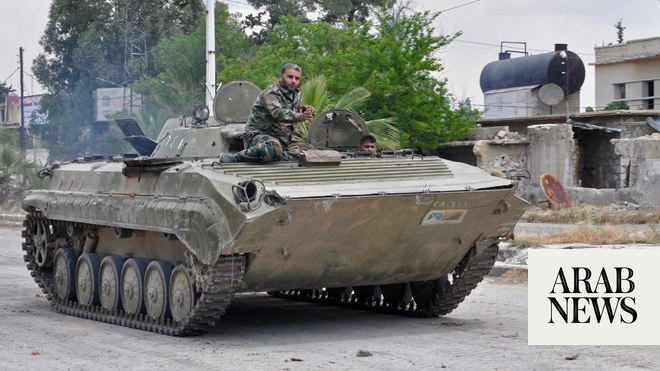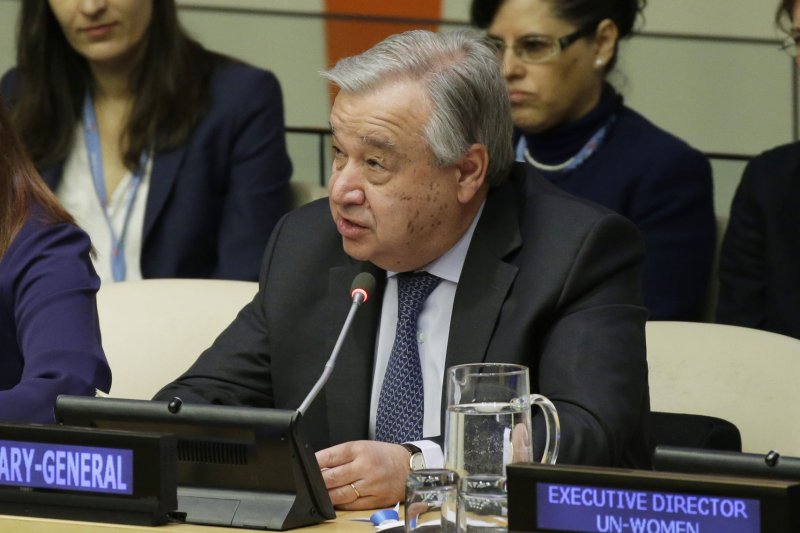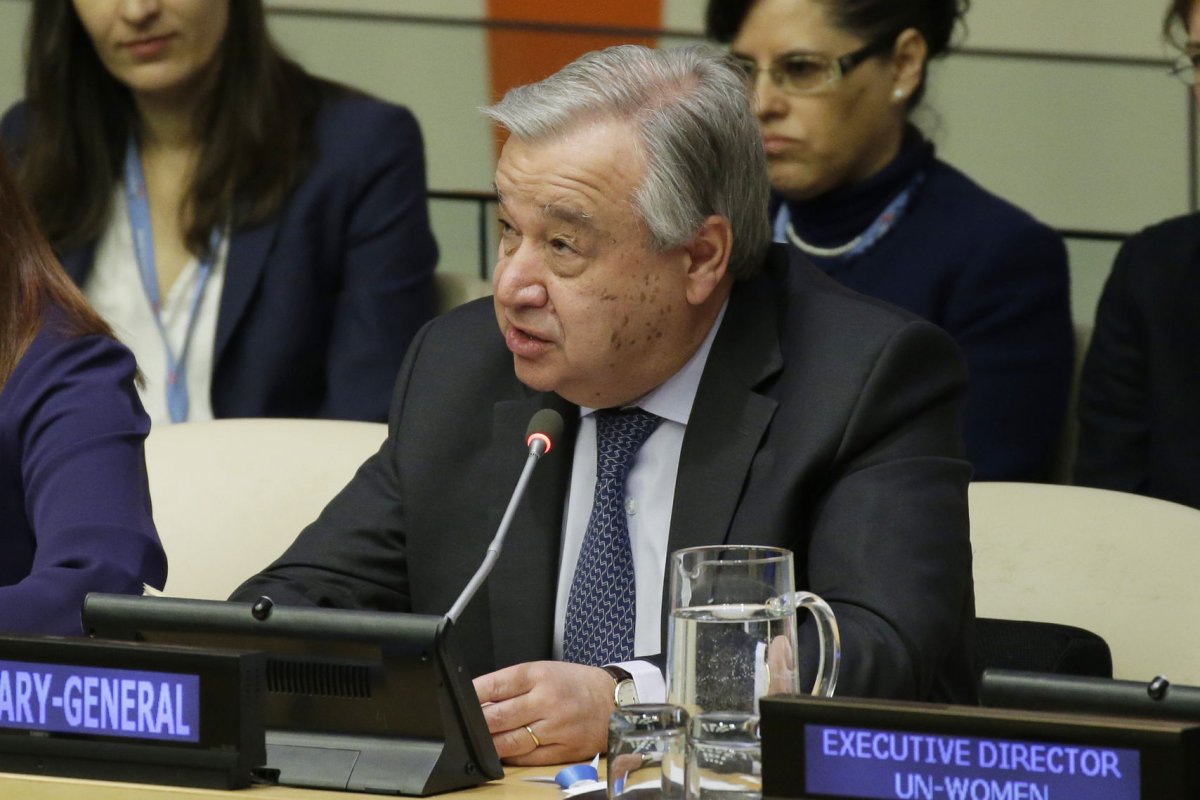US urges Russia to end 'escalation' in Syria's Idlib
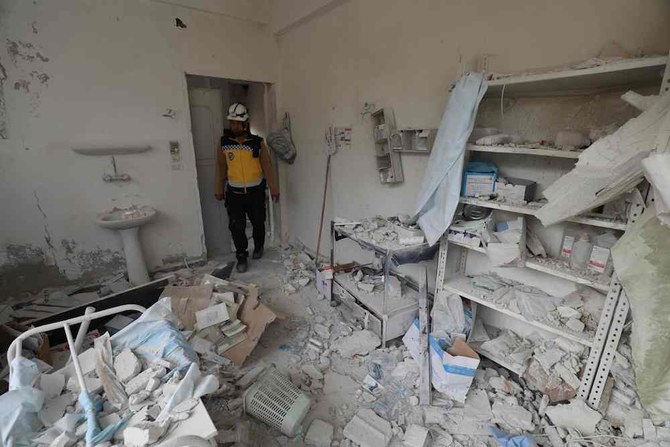
A member of the Syrian Civil Defence (The White Helmet) checks the rubble and debris at a medical center following reported shelling by the Syrian government. (AFP)
Updated 7 min 11 sec ago
April 30, 2019
WASHINGTON: The United States on Tuesday urged Russia to abide by its commitments and end an "escalation" in Syria's northwestern Idlib region after a monitor said air strikes killed 10 civilians.
"The violence must end. The United States reiterates that any escalation in violence in northwest Syria will result in the destabilization of the region," State Department spokeswoman Morgan Ortagus said in a statement.
"We call on all parties, including Russia and the Syrian regime, to abide by their commitments to avoid large-scale military offensives, return to a de-escalation of violence in the area, and allow for unhindered humanitarian access to address the humanitarian disaster created by the ongoing violence," she said.
Idlib is under the control of a former al-Qaeda affiliate in one of the last areas that President Bashar al-Assad has not taken back in his ruthless, Russian-backed campaign to crush an uprising against his rule.
Russia and Turkey, which backs Syria's rebels, in September agreed to a buffer zone to prevent a potentially devastating offensive in Idlib and nearby regions which are home to some three million people.
But the Syrian Observatory for Human Rights on Friday reported Russian air strikes in two towns that killed 10 people, including a boy and a girl.
The monitor also blamed Moscow and Damascus for shelling of a medical center, which the UN humanitarian office called "completely unacceptable."
Violence has separately flared in Aleppo province, where the monitor said that jihadist groups killed at least 22 Syrian government troops and militiamen on Saturday.

 www.arabnews.com
www.arabnews.com

A member of the Syrian Civil Defence (The White Helmet) checks the rubble and debris at a medical center following reported shelling by the Syrian government. (AFP)
Updated 7 min 11 sec ago
April 30, 2019
WASHINGTON: The United States on Tuesday urged Russia to abide by its commitments and end an "escalation" in Syria's northwestern Idlib region after a monitor said air strikes killed 10 civilians.
"The violence must end. The United States reiterates that any escalation in violence in northwest Syria will result in the destabilization of the region," State Department spokeswoman Morgan Ortagus said in a statement.
"We call on all parties, including Russia and the Syrian regime, to abide by their commitments to avoid large-scale military offensives, return to a de-escalation of violence in the area, and allow for unhindered humanitarian access to address the humanitarian disaster created by the ongoing violence," she said.
Idlib is under the control of a former al-Qaeda affiliate in one of the last areas that President Bashar al-Assad has not taken back in his ruthless, Russian-backed campaign to crush an uprising against his rule.
Russia and Turkey, which backs Syria's rebels, in September agreed to a buffer zone to prevent a potentially devastating offensive in Idlib and nearby regions which are home to some three million people.
But the Syrian Observatory for Human Rights on Friday reported Russian air strikes in two towns that killed 10 people, including a boy and a girl.
The monitor also blamed Moscow and Damascus for shelling of a medical center, which the UN humanitarian office called "completely unacceptable."
Violence has separately flared in Aleppo province, where the monitor said that jihadist groups killed at least 22 Syrian government troops and militiamen on Saturday.

US urges Russia to end 'escalation' in Syria's Idlib
WASHINGTON: The United States on Tuesday urged Russia to abide by its commitments and end an "escalation" in Syria's northwestern Idlib region after a monitor said air strikes killed 10 civilians. "The violence must end. The United States reiterates that any escalation in violence in northwest...
 www.arabnews.com
www.arabnews.com



